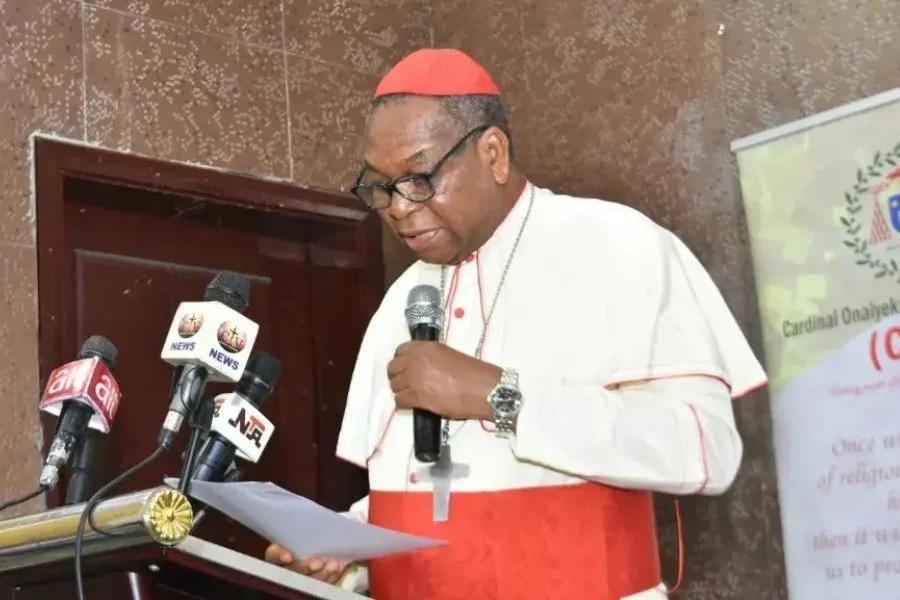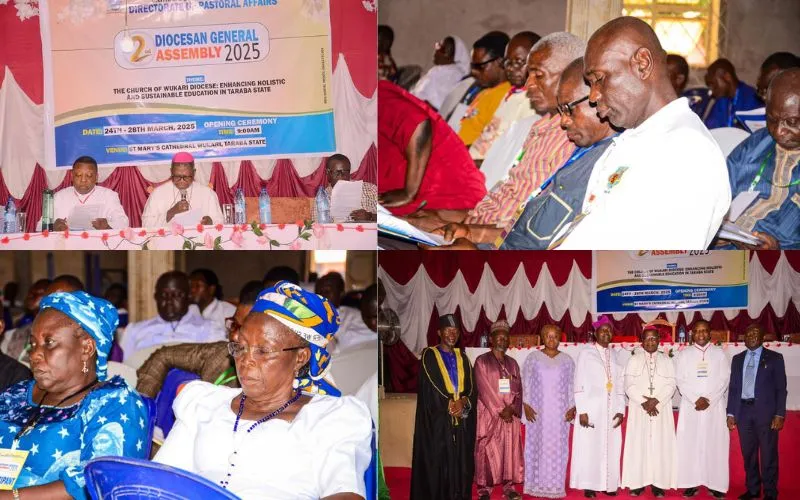Nigeria’s Independent National Electoral Commission (INEC) “promised us a standard election, but what transpired in the presidential election fell short of our expectations,” he further lamented.
“We should not resign ourselves to accepting elections that lack credibility. These leaders claim to have been elected by us, yet, we know we did not elect them. Even taking oaths with the Bible and Quran has become so common among politicians that they no longer have any moral compass,” he said during the July 19 event that was organized under the theme, “Nigeria-Pathway to National Peace and Reconciliation.”
Making reference to the cases of Atiku Abubakar of the People’s Democratic Party (PDP) and Peter Obi of the Labour Party (LP) challenging the victory of the 70-year-old Tinubu, who was sworn in on May 29, the Cardinal said, “There are ongoing cases in court that have yet to be resolved. We have a president, whose election is being challenged, and the court is handling the matter. It is not enough to attribute Nigeria’s problems solely to leadership.”
“Why do we allow these same leaders, who have not denied being corrupt, to continue leading us?” the Nigerian Cardinal posed, and added, “We do not need to legitimize it; what is wrong is wrong. They owe us the responsibility to wield the power acquired from public office judiciously.”
The Cardinal who started his Episcopal Ministry in January 1983 as Auxiliary Bishop of Nigeria’s Ilorin Diocese also reflected on the origin of Christian persecution in Nigeria.
“The emergence of Boko Haram caused significant damage, as it was perceived as an attack on Christians. Fanatics believe that anyone practicing a different faith is in error. This is incorrect,” he said.
Cardinal Onaiyekan added, “We should assume that everyone is sincere and convinced of their own beliefs. That is why it is wrong for anyone to speak ill of any religion.”
“I do not want it to seem as though we have lost our way as a people because we still coexist. Both religions have not given up on peace. While some individuals strive to create divisions for their own selfish gains, the majority of Nigerians still believe in unity,” he added.
Abah Anthony John contributed in the writing of this article
ACI Africa was founded in 2019. We provide free, up-to-the-minute news affecting the Catholic Church in Africa, giving particular emphasis to the words of the Holy Father and happenings of the Holy See, to any person with access to the internet. ACI Africa is proud to offer free access to its news items to Catholic dioceses, parishes, and websites, in order to increase awareness of the activities of the universal Church and to foster a sense of Catholic thought and culture in the life of every Catholic.








